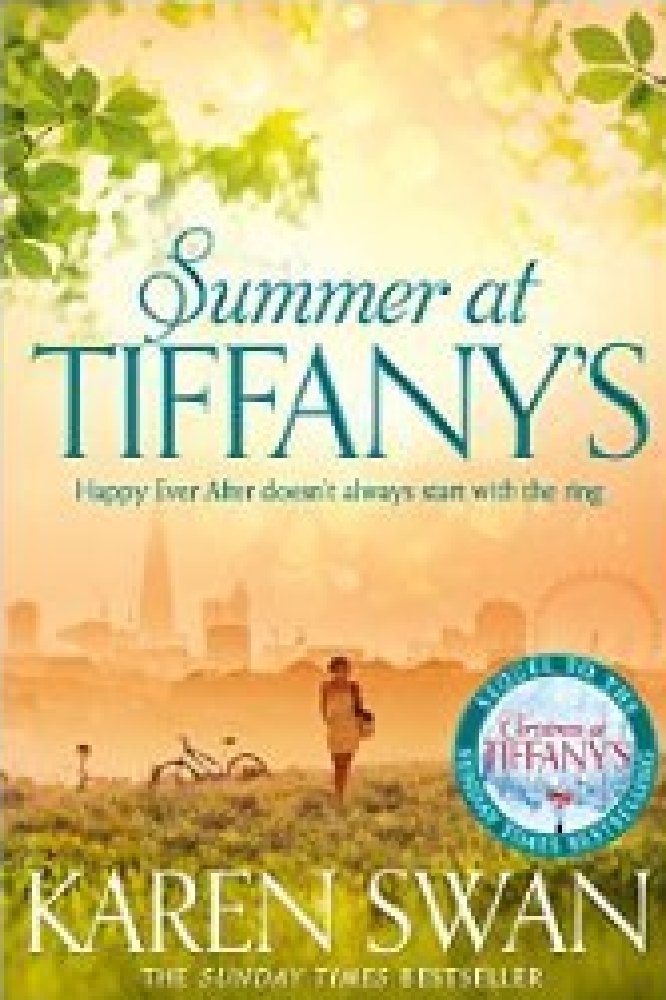When it was first put to me to write a summer book as well as a Christmas title, I was excited - and then daunted. And then excited again. And then really freak-out daunted. Why? Because writing a book is an odd job at the best of times. Some days I can't stop the words from flowing, the next I can scarcely string together a thank you card, and there's no rhyme or reason to it - I still know what needs to happen next in the story, I'm still the same person I was the day before and yet the words just won't come.

Summer at Tiffany's
Every writer has experienced this and knows it leaves you feeling frustrated, restless, frankly ridiculous, but when you're writing two books a year, it leaves you furious as well. The double-up schedule doesn't allow any time for bad days. Writers block is a luxury I can't afford. It's tricky enough accommodating the erratic, stop-start rhythm of book-writing into a strict publishing schedule which generally requires six months to edit, shape and brand the nervy first draft into a glossy book; halving that time makes it trickier still and there simply aren't any shortcuts.
So how do I do it? My books are usually 120,000 words long by the time they're finished, so I aim to write the first draft to 100,000 words. I impose on myself a word-count of 10,000 words per week. This is distinct from a word count of 2000 words/day because if I do have a bad day, I don't have to panic about it; I may have to work weekends or evenings to meet the deadline but it does give me a little bit of breathing space and though I may do only 500 words one day, I can make it up with three and four thousand words the following days.
In theory, this means I have ten weeks, or two and a half months, to get the first draft down, (but let's round it up to three months as life does get in the way a lot - dogs need to be walked, children will have birthdays!) but concurrent to the writing process for the new book is the editing process for the previous one. I factor in approx 6 -8 weeks for editing, which is done in three separates batches and means flipping my head from the new story back to the old one and then back to the new one again. It's a wonder I remember my own name most of the time.
If I can keep to the schedule - and as much as possible I try to write within my children's term times so that I'm not writing over Christmas or on our summer holiday - then that leaves a few weeks off between physically writing the books; But 'physically' is the pertinent word here - my arms may rest but my head doesn't as I need to use that time to start building up the next story. I have to clear my mind of everything I've just immersed myself in for the previous six months and start researching locations, plots, characters so that the whole crazy cycle begins again!
I can't deny that the schedule is very pressured and there are moments when I feel overwhelmed by it - what if the ideas won't come? What if I really can't push past that dead end? - but if it's double the work, it's also double the rewards: the thrill of seeing my book on the shelves twice a year, the adrenaline buzz of the charts coming out each week, collaborating on covers and titles and taglines and marketing campaigns, launch lunches with my editor and agent that force me out of my writing room and blinking into the sunlight... It may not work for many writers but I've adapted to the pace and sshh, don't tell anyone…its rather fun.


